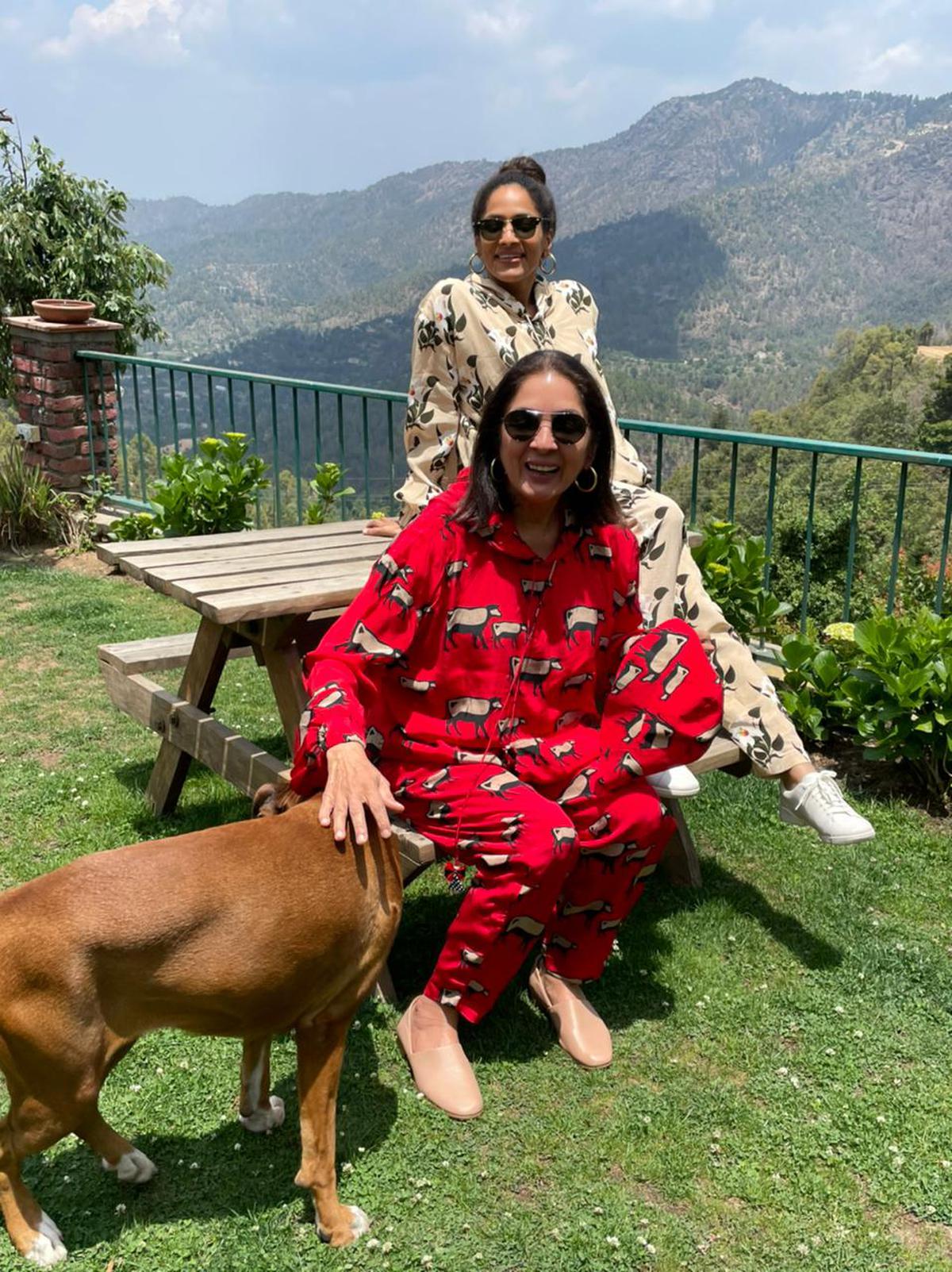The first time someone called Masaba Gupta a n***** was when she was 12 years old. She went home and asked her father, West Indies cricketer Vivian Richards, what it meant and how she should respond. “He told me to slap that person and I did,” she says, recalling how that became the catalyst for a conversation between her parents about what they should and shouldn’t be telling their child to do. Decades earlier, Richards’ team hopelessly outclassed Tony Greig’s on the field after the then England cricket captain said he would make the West Indians ‘grovel’.
“I have been surrounded by controversy since the day I was born,” Masaba, now 33, says in the hit Netflix docudrama Masaba, Masaba. She is referring to the fact that people still remember that mother Neena Gupta, an award-winning actor, gave birth to her as a single woman in 1989, and have always used that as their key reference point when talking about both women. The duo play fictionalised versions of themselves in the hit, two-season show which begins with Masaba’s divorce. In the air kissing, party line-towing celebrity world they inhabit, their feminist values — and the willingness to express these values freely — is refreshing.
ALSO READ | Masaba Gupta and co on closing the gap behind the camera
Masaba (meaning princess in Swahili) says the “one time it really got to her” was when a profile of her in a prestigious financial publication began: ‘Masaba Gupta, the love child of Vivian Richards and Neena Gupta…’ and then proceeded to detail her multiple successes. “All these years later, somehow that is still part of my identity,” she says. So, she decided to do something about it.
“I’m not someone who sits on the fence. I will face conflict head on and solve it,” says Masaba
| Photo Credit: Special arrangement
In charge of the narrative
The name of her newly-launched beauty line, LoveChild Masaba, takes us full circle. You’ll see the word emblazoned outside many of her eight storefronts across the country. “For a major part of my life, love child has been leading the narrative,” she said in an Instagram video before the launch. “I decided to own it.” Honestly, it is the most creative kick to big city patriarchy since 2009’s pink chaddi campaign.
It is also her way of pushing people to look beyond the love child label to the successful career woman and her many achievements since she ventured into the fashion business at 19: the TV show; a 51% acquisition of her company for ₹90 crore by the Aditya Birla Group; a slew of collaborations with everyone from Levis and Samsung to TV show Game of Thrones; a jewellery line and much more.
READ | Masaba Gupta’s $1 million story
The idea to own the descriptor and, more importantly, move past it, came to her last year when she was Googling herself. “I realised that 80-90% of articles introduced me like that,” she says. “We always put women in these boxes and now I’m saying ‘this is what I plan to do with the box you put me in’.”
It is precisely this unapologetic quality that makes younger women sit up and listen. They tell her they relate. Masaba says in the show that she knows what it feels like to “look in the mirror and not like anything”. Growing up, she struggled to find clothes that fit. She’s battled conventional beauty standards and the eulogising of petite, slim frames over strong girls with athletic bodies all her life — and turned this angst on its head to create an enviable fashion empire. Many of the models she uses don’t conform to mainstream beauty standards.
She gets what younger women go through — in love, with their bodies and because of the rules society expects them to follow. Through her life, work and unconventional choices, she encourages her younger followers to trust their gut, not settle. She makes them see their beauty.
Inspiring in the face of conflict
Like her father, she’s a fighter. “I’m not someone who sits on the fence. I will face conflict head on and solve it. I’m somebody who likes to be on the ball, on top of things. That definitely comes from my father,” she says. At 70, he’s still a fierce role model. “I want people who look like me to know that we can achieve great things,” he says in a recent speech she shared on Instagram.
Season 2 of Masaba, Masaba ends with her phone flashing ‘Dad’— it is Richards’ first ‘appearance’ on the show. “I really hope that part of my life can become something I can share in a future season,” says Masaba. “We’ve barely scratched the surface.”
The writer is a journalist on the editorial board of Article 14. She is the co-founder of India Love Project.

























